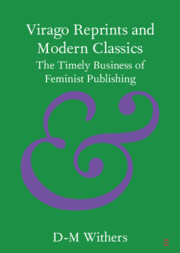Refine search
Actions for selected content:
1 results

Virago Reprints and Modern Classics
- The Timely Business of Feminist Publishing
-
- Published online:
- 29 April 2021
- Print publication:
- 20 May 2021
-
- Element
- Export citation
